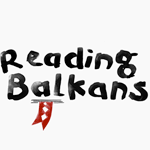Yordanka Beleva, born 1977 in Tervel, is a Bulgarian short story writer and poet. She graduated in Bulgarian Philology and Library Management and obtained a doctorate in Library and Information Sciences.
Author of Peignoirs and Boats (2002), The Sea Level of Love (2011), Her (2012), Keys (2015), Missed Moment (2017) and Keder (2018), she has won national awards for both poetry and prose. Her short stories and poems have been translated into various languages and published in numerous anthologies.
She works as a librarian and bibliographer at the Parliamentary Library of Bulgaria.
Keder
Family portrait of the black earth
When the surgeons excised one of my Grandma’s breasts, she began to hold her hands on the empty space. Like, the way people conceal some sort of inconvenience. Her cupped hand, which in my memories was the hollow of the caress and the unity of the remaining time at one and the same time, has now become a church dome. Dome of a broken church. We stood in front of the ruins and watched the pieces of frescoes, the late date of the doctors and the late human prayer scratched on them.
The village women came to check how she felt. Pain is a peculiar tourist site. Somewhere in the world there are entrance fees for the big tragedies. Houses which have witnessed someone’s torture for years, schools where there was mass shooting, road sections with train crashes. The entrance to the exhibition of my grandmother’s wound was free. Sometimes she would tell her visitors that the only place hurting was her cut breast, but they could not understand how a piece of meat separated from the body for a long time could hurt.
She sent Grandpa do the hospital several times – to take the breast so they could bury it in the garden. The garden has given good harvest for years. But it would not be a planting organ, it could only be a laboratory plant.
Grandpa pretended to go to the doctors. He would lie to her that she needed special papers, sometimes he claimed she had missed the deadline, but all that could not last forever. So, one day he came back with a package from the butcher’s. He slogged the meat and his features grew rawer than the raw meat, he was punching it therapeutically, the therapy did not help him. He resembled a diligent farmer preparing winter supplies. Like dried meat which gets best when smoked over smoldering fire. He kept the meat away from the cats and from Grandma’s eyes until it dried out enough to resemble a breast carcass.
They hoisted a small hole near the grave of Karaman, the dog. They laid the herbarium in it and buried the hole. There was no ritual. It was important for Grandma to collect all her parts together, she believed she could not leave this world if something from her body was missing. It was important for Grandpa to fulfill her last wish to be whole.
She overlived her cut breast by eight years.
During that period, we talked a lot. We tried to behave as if nothing had happened. This is a camouflage disguise of the conversation. Still, the disguise broke every time: she would suddenly ask whether I remember the song about the decapidate guerilla Vela Peeva, whether Grandpa had brought her the breast of another person and now another woman might be looking for hers somewhere, to observe her carefully again – the left half of her body is of a girl and the right one is of a shabby old woman. And such became our conversations – there was an echo in their left half, accompanied by a right-hand silence.
She did not go to the place where she buried her breast. Like all the deserted graves, this one got quickly overgrown with weeds. She once told me how she cared for the entire garden for all her life – from morning till night she plugged off the weeds, because they were the cancer of the garden, quickly covering the good plants and killing them. And how she ought to care for her health as if it was a garden. To be a good gardener, she told me.
Sometimes I wonder if we should be honest about what we’ve buried in the ground. I watched a story about two cousins who tried to manipulate the lottery system so that the numbers they have filled would be in sync with the winning ones. But they have forgotten that the jackpot had to be certified by the presence of all the slots of the fiche. I said, Grandpa is a good criminal, he has changed the Grandma’s cuts so that she felt she had won in the midst of her biggest loss. And this is not an optimistic lesson.
I do not like optimistic theories, especially their sloppy templates for the half-full glass. Probably because I’ve seen half an empty bra cup.
Empty bras at home are an archaeological finding of a long-dried Milky Way. At some other places they are witnesses of a soft landing in maternity, the flags of a surrendering childhood. But all the empty bras are sad: something is gone, someone has followed step. And no substitute padding in the heart has yet been invented to flatten the losses so they are half full.
A strange plant now plows its way, near the place where we have buried the rotten meat. If I like him, I’ll call it Grandma’s Calming Herb.
Translated by Angelina Alexandrova-Kostadinova

